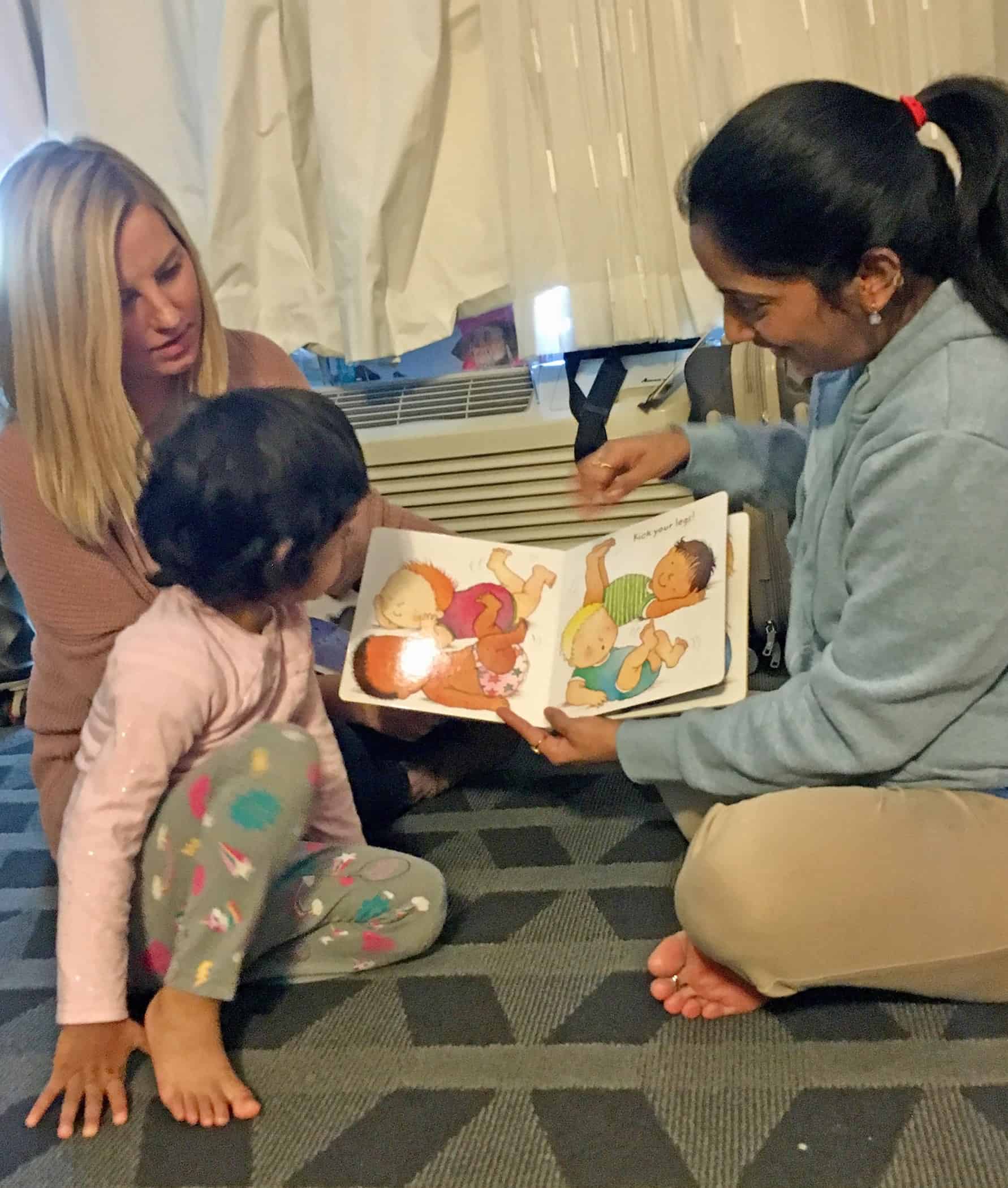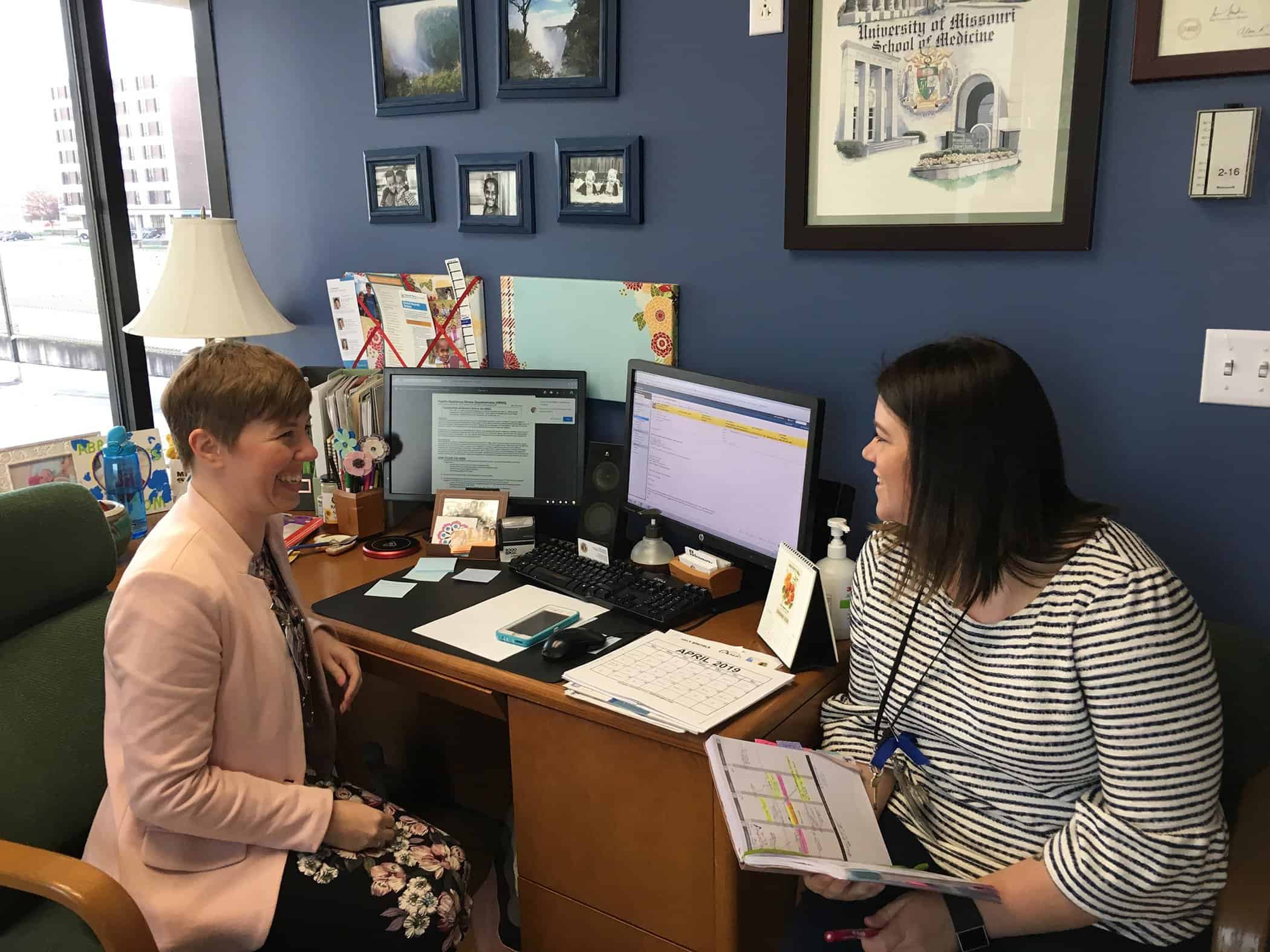SPRINGFIELD, MO – March 29, 2019 – Creating new ways for parents to connect to healthcare systems and pediatricians is the aim of a new collaboration between the Springfield Public School District’s Parents as Teachers (PAT) home visiting program and Maternal Child Health (MCH) providers in southwest Missouri’s Greene County.
Through a federal grant program called Healthy Tomorrows Partnership for Children, the two entities are joining forces behind an initiative named “Community Connections” to address ways MCH providers and PAT parent educators can engage with families to ensure that their children’s healthcare needs are being met.
Parents as Teachers is a federally-recognized home visiting model, headquartered in St. Louis, MO that serves families through personal visits – primarily in the home – with early and routine health and developmental screenings of children, parent support group meetings, and referrals to community resources as needed.
The goal of the collaboration is to create a parent-centered system that promotes the overall well-being, early childhood development and learning of children, so they are ready to succeed in kindergarten.
Katherine Quinn (left) a parent educator with the Springfield Parents as Teachers program, assists a family with early childhood educational development during a home visit in Greene County.
According to Katie Quinn, one of five PAT parent educators embedded in the Community Connections project, and assisting pregnant mothers and parents of young children in different area medical facilities, Healthy Tomorrows seeks to reduce overlap and increase coordination among the early childhood home-visiting and MCH provider communities.
“This collaboration gives us an opportunity to learn about what systematic changes can take place to support parents’ engagement in their children’s health,” said Quinn. “Our focus is to ensure that families receive more comprehensive support and are ultimately able to improve the health and developmental outcomes of their children.”
Healthy Tomorrows is administered by the Division of Maternal and Child Health Workforce Development. It is funded by the Health Resources and Services Administration (HRSA) of the Department of Health and Human Services, the Missouri Chapter of the American Academy of Pediatrics, and a grant from the Missouri Foundation for Health.
Other community partners include Every Child Promise, a community-wide initiative in Springfield to reduce by 50 percent (in 10 years) the number of children who arrive at kindergarten unprepared; The Nest, Ozark Community Hospital, a safety net hospital; Greene County Health Department, Jordan Valley Health Center, a federally qualified health center (FQHC), and a host of pediatric practices in the region.
Pediatrician Dr. Kelly Wright (left) discusses parenting tactics with Amanda Coleman, a parent educator in the Springfield Parents as Teachers home visiting program. Coleman is embedded in the clinical setting at Cox North Pediatrics.
At the crux of the project, Quinn said, are pediatricians and pediatric primary care providers. She said cultivating greater coordination between PAT home visitors, pediatricians, and the MCH community is a chief strategy to improve care and outcomes for the targeted communities. The project serves as a model for national replication through the PAT network of 1,036 affiliates in all 50 states.
The Springfield Parents as Teachers program currently serves more than 2,500 families, nearly half of these families have two or more high needs characteristics (e.g. low-income, teen parent, limited English proficiency).
Research shows that children’s health is a key factor in school readiness and success and that there is growing recognition by pediatricians that home visiting is an effective strategy for improving health outcomes for children. Children with untreated, chronic health problems are frequently absent from school and can develop knowledge gaps that are hard to overcome.
“This is a great program that will prepare and empower MCH leaders to promote health equity, wellness, and reduce disparities in health and healthcare by partnering home visiting services with pediatric care providers in multiple settings,” Quinn said.



